CuriosiD: What is the history behind the Belle Isle Boathouse?
Amanda LeClaire July 31, 2024In this episode of “CuriosiD,” we answer a question about the heyday of the iconic, ornately-designed structure and what the future holds for the historic site.
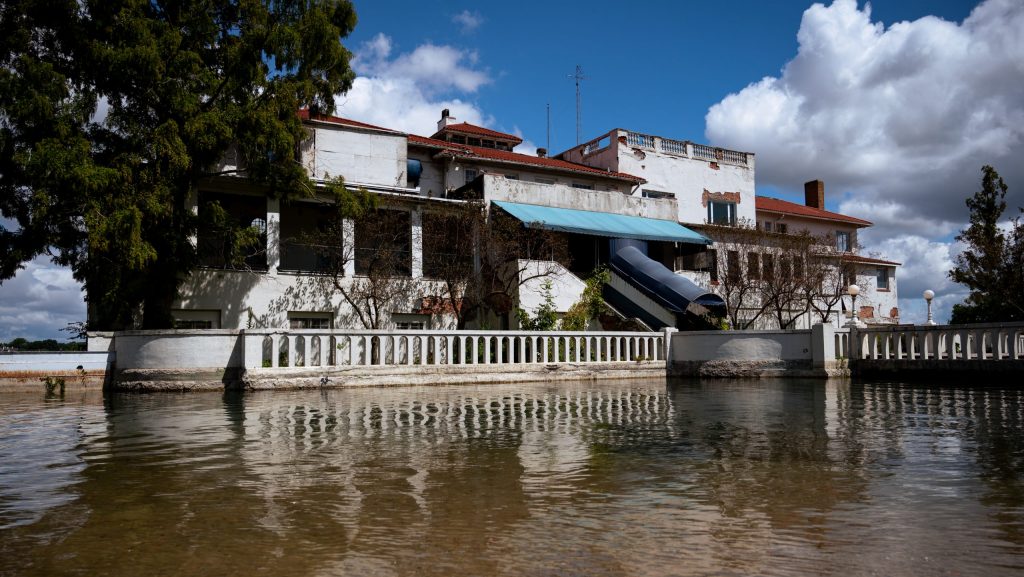
The Belle Isle Boathouse, built in 1902, has been the home of Detroit's only rowing club for more than 100 years.
WDET’s CuriosiD podcast answers your questions about everything Detroit. Subscribe to CuriosiD on Apple Podcasts, Spotify, NPR.org or wherever you get your podcasts.
In this episode of CuriosiD, we answer the question:
“What is the history behind the Belle Isle Boathouse?”
The short answer
On the north side of Belle Isle, better known as the “Detroit side,” sits a 40,000-square-foot building only a few have entered in years, and almost none since last summer. It’s one of a handful of iconic landmarks on the island and also one of many buildings in the city which have faced the threat of demolition.
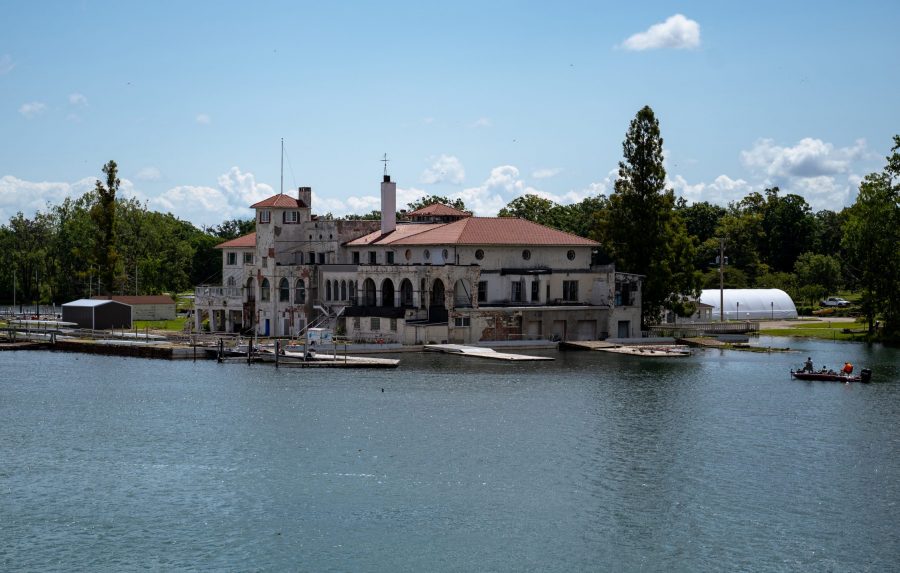
A Historic Landmark
The Belle Isle Boathouse was built in 1902 and designed by Detroit architect Alpheus Chittenden. The structure blends Beaux-Arts and Classical Revival architectural styles, featuring intricate woodwork, including balustrades with sea horses and ornate dolphins.
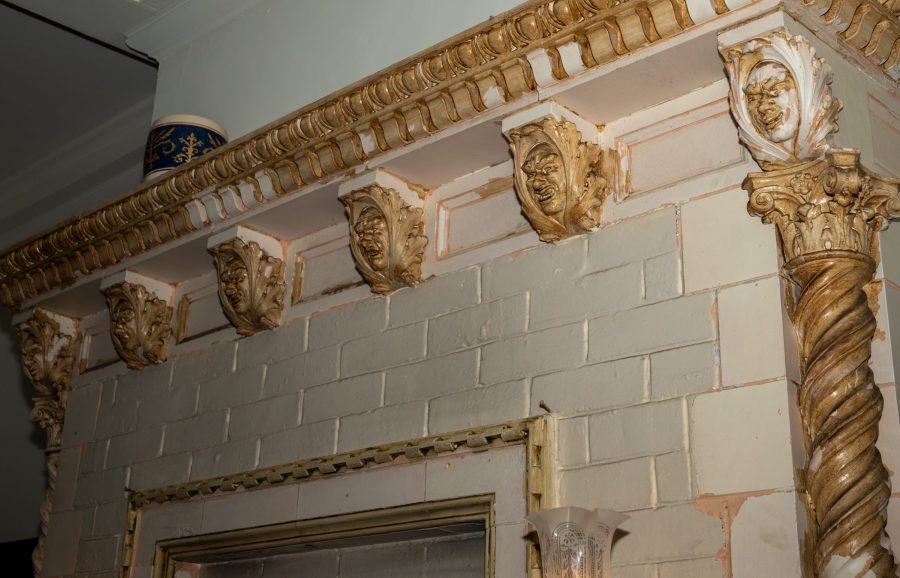
The boathouse has been the home of Detroit’s only rowing club for more than 100 years, says Todd Platt, vice president of the board of Friends of Detroit Rowing.
“The atrium is lined with trophy cases and there’s a lot of really nice hand-carved woodwork up here,” Platt told me during a private tour of the boathouse. “There are balustrades with sea horses carved into them and incredibly ornate dolphins on each post.”
Social and athletic legacy
The boathouse’s history is far more vibrant than a simple rowing hub.
As the former home of the Detroit Boat Club, the building was a popular social center — hosting numerous events and gatherings for members over the decades.
In its heyday, the boathouse was a bustling venue, featuring a grand ballroom, dining rooms and a bar frequented by Detroit’s elite. Social events, including dances and dinners, were commonly held within its walls.
The club’s athletic achievements are also impressive, producing both Olympians and national rowing champions.
“Throughout its history, it’s been really successful,” Platt said. “We’ve had 19 Olympians, 500 national champions, and we’re probably better known nationally and internationally than we are here in Detroit.”
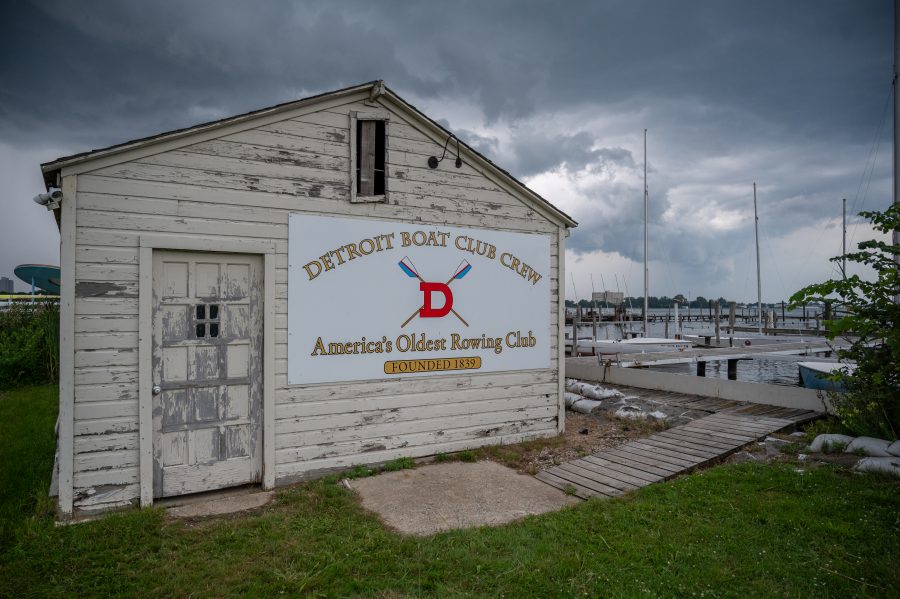
The club’s collection of rowing memorabilia includes trophies, medals, and historical photographs, even Olympic metals donated by past members.
The Oak Room, where club members once dined in formal dress, and the Island Room — once housing a significant art collection — are just a few of the unique spaces within the boathouse. The latter’s bar room, last updated in the 1960s, was a popular gathering spot for high society reminiscent of the Mad Men era.
“This bar goes way back. Captains of industry would stop here, talk about the events of the day, and probably make some side deals,” Platt said. “This is where a lot of the elite from the city would come and congregate.”
Challenges and preservation efforts
Despite its former glory, the boathouse as it stands today faces significant challenges.
Friends of Detroit Rowing has maintained the iconic structure since the 1990s, but years of increasingly harsh weather and difficulties keeping up with repairs have taken a toll on the building.
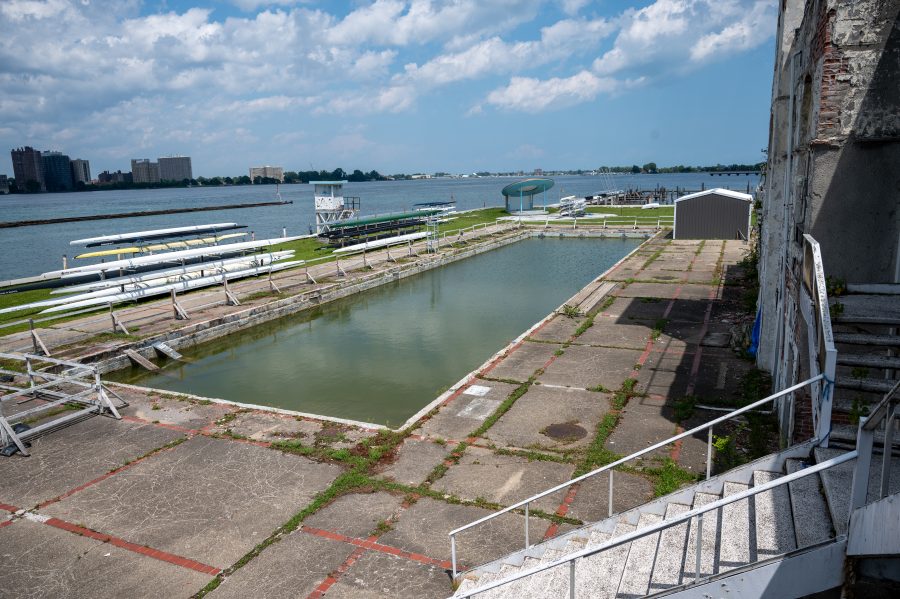
“When [Friends of Detroit Rowing] kind of took over responsibility for the building, we would keep up the areas that we needed for our programming, but we also expanded our maintenance and upkeep when we started hosting events here,” Platt said.
The group has hosted several fundraising events to help their restoration efforts, with proceeds reinvested into preservation projects. However, those who want to save the boathouse say much work is still needed to ensure its survival for future generations.
The Michigan Department of Natural Resources took over the facility’s lease when it assumed management of the island in 2014. In 2022, the agency deemed the building structurally unsound due to significant deterioration.
The DNR condemned the building a year later after an exterior porch collapsed. Since then, Platt says more damage has occurred due to members of the rowing club being unable to access the building for repairs.
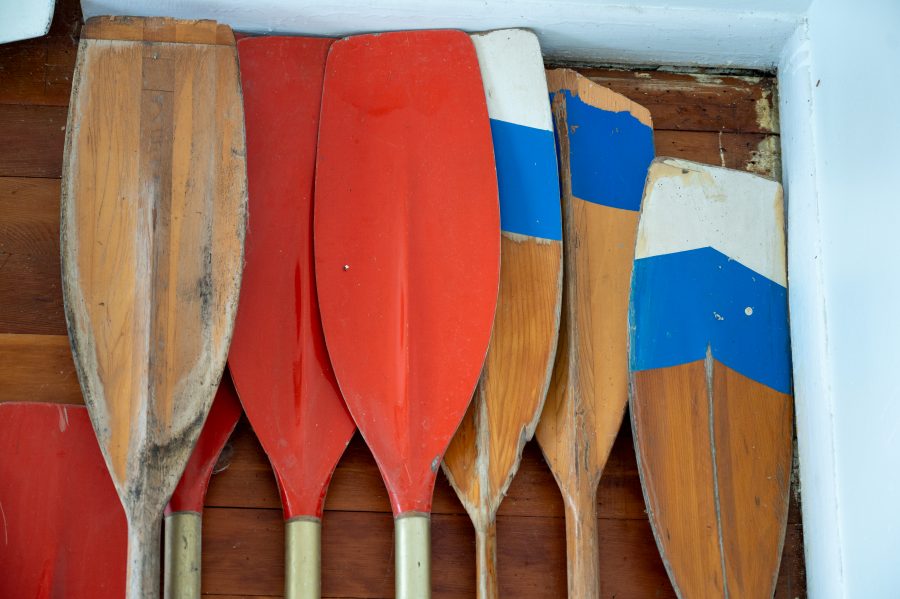
A glimmer of hope
Earlier this year, the DNR announced plans to demolish the building due to limited funding for the facility’s upkeep — unless a private investor steps forward to help the agency restore it.
Since then, a movement to save the Belle Isle Boathouse has gained steam.
State officials placed an open call for proposals to rehabilitate the building in March 2024. Those proposals are currently being evaluated with a deadline of July 31 for acceptance by the DNR.
About the listener

Erin Rose Briggs is a program manager at a company in the battery and electric vehicle space. She lives in Detroit and often bikes around Belle Isle. Briggs shared her experiences and thoughts with WDET about the Belle Isle Boathouse, which she bikes past every time she visits Belle Isle.
We want to hear from you!
If there’s a question swimming around in your head, let us know here or fill out the form below.
Author
-
 Amanda LeClaire is an award-winning journalist and managing editor and lead reporter of WDET's new environmental series, the Detroit Tree Canopy Project, as well as WDET's CuriosiD podcast. She was the host of WDET’s CultureShift and a founding producer of the station’s flagship news talk show *Detroit Today*. Amanda also served as a Morning Edition host at WDET and previously worked as a host, audio and video producer, and reporter for Arizona Public Media.
Amanda LeClaire is an award-winning journalist and managing editor and lead reporter of WDET's new environmental series, the Detroit Tree Canopy Project, as well as WDET's CuriosiD podcast. She was the host of WDET’s CultureShift and a founding producer of the station’s flagship news talk show *Detroit Today*. Amanda also served as a Morning Edition host at WDET and previously worked as a host, audio and video producer, and reporter for Arizona Public Media.
